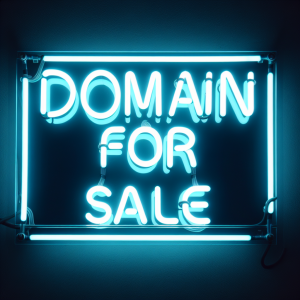
How to Start a Profitable Domain Selling Business in 2025
Buying and selling domain names can be a surprisingly profitable business. At its core, it’s about purchasing web addresses—domains—with potential value and reselling them to people or companies that need them. With the internet growing every day, businesses are constantly searching for the perfect domain to represent their brand, and many are willing to pay top dollar for it.
This business doesn’t require extensive technical skills or large startup costs, making it an attractive option for entrepreneurs. All it takes is a sharp eye for valuable names, some patience, and understanding the market. If you’ve ever wondered how buying online real estate could turn into real earnings, this could be the opportunity you’re looking for.
Understanding the Domain Market
The domain market operates like a virtual real estate business. Instead of physical storefronts, you’re dealing with digital addresses—website names that businesses and individuals use to define their online presence. The value of a domain is heavily influenced by factors like demand, cultural trends, and tech innovation. Gaining a solid understanding of what makes a domain valuable and how trends shape demand is vital to succeeding in this business.
Why Certain Domain Names Are Valuable
Not every domain name is worth a fortune, so what separates a goldmine from a dud? Several key factors influence a domain’s value. Knowing these can help you make smarter purchasing decisions and recognize great opportunities when they arise.
- Keyword Relevance: Keywords are like magnets for search engines. Businesses often pay extra for domains with relevant keywords that align with their industry or services. For example, if you own
MiamiRealEstate.com, it has immediate value to realtors in Miami because it’s simple, clear, and highly relevant to what people might search for. - Length Matters: Shorter domains are easier to remember and type. Three- or four-letter acronyms (like
ABC.comorDNS.com) are particularly valuable because they’re practical for branding across many industries. Longer, overly complicated names can lose their appeal quickly, especially when simpler alternatives exist. - Domain Extension: The “.com” extension is still king in the domain world. It’s universally recognized and trusted, giving it widespread appeal. However, trendy extensions like “.io,” used often by tech startups, or regional ones like “.co.uk” can carry value depending on the audience. Always consider who the domain may appeal to and which extension works best for that niche.
- Brand Potential: A good domain name should feel like it belongs on a billboard or business card. If it’s catchy and easy to say, all the better. Names that spark curiosity or suggest a specific image—like
FreshGroceries.com—can appeal to businesses looking to build an identity. - Age and Traffic History: Older domains often carry more weight because search engines treat them as more established. Even better if the domain has a history of generating traffic or backlinks. Think of it as buying a property that’s already been appreciated by others—it’s worth more because the groundwork is done.
Considering these factors when evaluating names can save you from wasting money on domains with little to no resale value.
Trends to Watch in Domain Selling
Knowing where the market is heading is just as important as understanding what works today. Trends in technology, industries, and culture are constantly reshaping what types of domain names attract buyers. Staying tuned into these shifts can help you grab domains that will be in high demand tomorrow.
- Tech Industry Growth: Domains related to emerging tech—like AI, blockchain, and Web3—are hot commodities. For example, names with “AI” in them or those that reference cutting-edge concepts (e.g.,
CryptoBank.ioorFutureAI.com) are seeing a surge in demand. Think about industries still gaining traction and buy domains tailored to those niches. - Geographic Niches: As more businesses go online, geographic domains are becoming highly sought after. Specific combinations like
CityNameProfession.com(e.g.,DenverLawyers.com) or regional identifiers like “.us” or “.ca” often find eager local buyers. If you’re targeting small businesses, geographic areas can be goldmines. - Shifts in Work and Culture: People’s habits drive demand in the domain market. The growing remote work culture has spiked interest in domains related to coworking, freelancing, and online learning (think
RemoteExperts.comorFreelanceAcademy.io). Similarly, consumer shifts toward sustainability and wellness translate into valuable domains in those spaces. - Startup Naming Trends: Startups love creative and unique branding, leaning heavily into short and quirky domain names. Single-word names, often paired with extensions like “.io,” “.co,” or “.vc,” are especially popular right now. Being ahead of these trends gives you an edge when registering domains that align with startup culture.
- Brand-Safe Domains: There’s an increasing demand for clean, professional, and brand-safe names that companies can trust. Domains with universal words, phrases, or numbers like
NextStep.comor101Solutions.comtend to hold significant appeal across multiple industries.
By staying alert to these trends and regularly researching emerging patterns, you can anticipate what types of domains will be in high demand before the competition catches on. It’s all about spotting the next wave before it hits.

